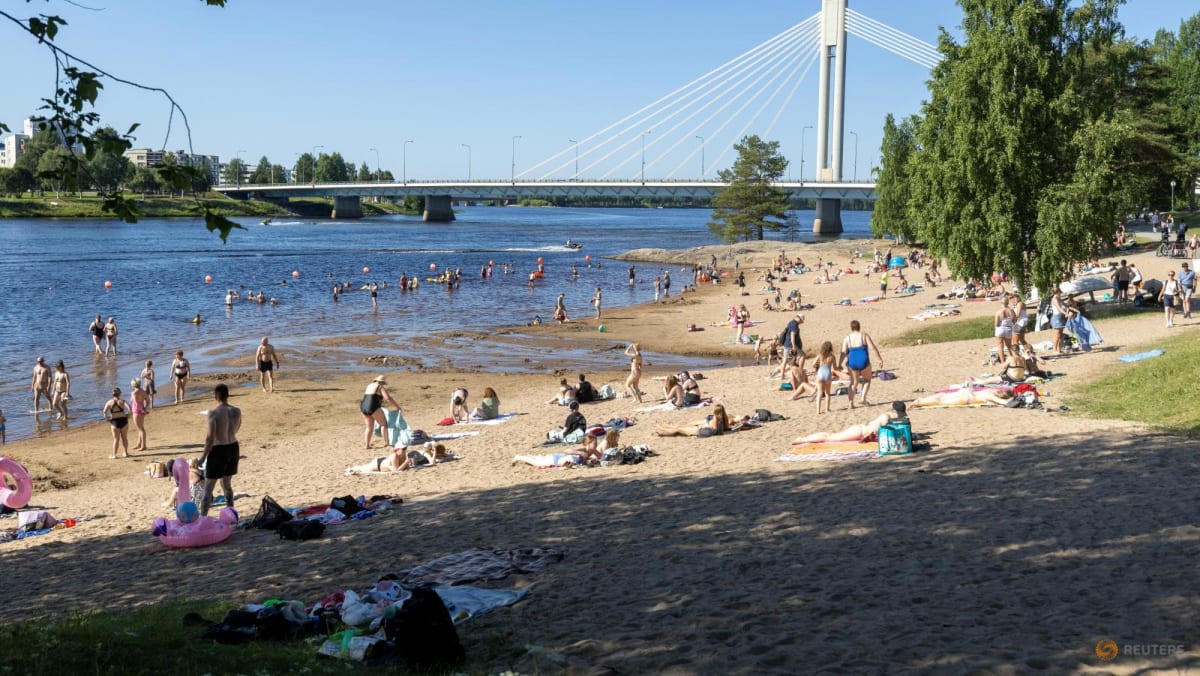STOCKHOLM: Human-caused climate change made a recent Nordic heatwave about 2°C hotter, putting a strain on healthcare, ecosystems and indigenous Sami reindeer herders in a region ill-equipped for such events, researchers said on Thursday (Aug 14).
Finland, Norway and Sweden experienced unusually hot weather for two weeks in the second half of July as temperatures soared above 30°C, with Finland seeing 22 consecutive days of temperatures above 30°C.
The persistent heat led to people fainting at outdoor events, overcrowded and overheated hospitals, wildfires, algae blooms, a surge in drownings, and sightings of reindeer seeking shade in towns, the two dozen European researchers said in a report published by the World Weather Attribution.
“Climate change made the heatwave about 2°C hotter and at least 10 times more likely,” their rapid analysis showed.
The heatwave was intensified by the burning of fossil fuels, which release planet-heating carbon emissions, they said.
“Climate change is fundamentally reshaping the world we live in,” Clair Barnes, a researcher at the Centre for Environmental Policy at Imperial College London said in a statement.
“Cold-climate countries like Norway, Sweden and Finland are now experiencing unfamiliar levels of heat, as recently seen in strained health systems and sightings of reindeer seeking shade in urban areas,” she said.
The report came as temperatures were again expected to soar to almost 30°C in parts of the region on Thursday.
